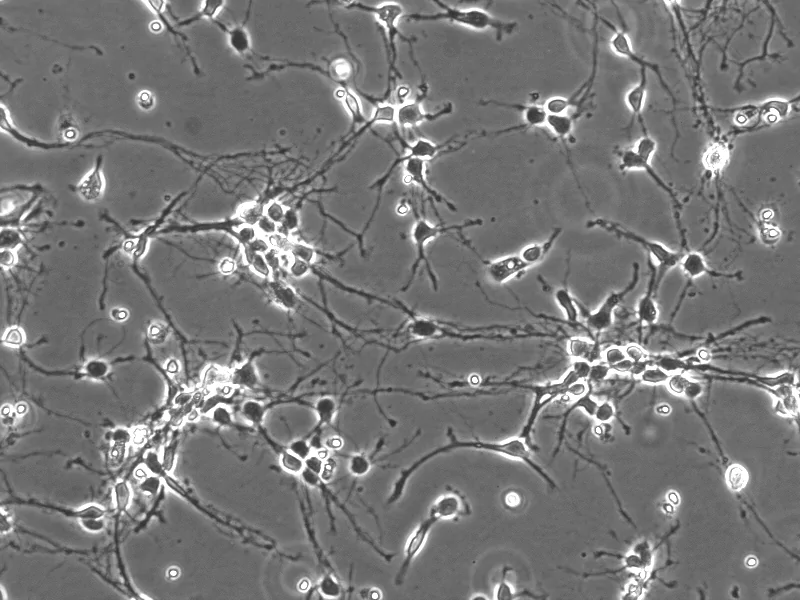Mouse Neurons-dorsal spinal cord from CD1
Product Code:
SC-M1580
SC-M1580
Host Type:
Mouse
Mouse
Regulatory Status:
RUO
RUO
No additional charges, what you see is what you pay! *
| Code | Size | Price |
|---|
| SC-M1580 | 1 x 10^6 cells/vial | £505.00 |
Quantity:
Prices exclude any Taxes / VAT
Stay in control of your spending. These prices have no additional charges, not even shipping!
* Rare exceptions are clearly labelled (only 0.14% of items!).
* Rare exceptions are clearly labelled (only 0.14% of items!).
Multibuy discounts available! Contact us to find what you can save.
This product comes from: United States.
Typical lead time: 10-14 working days.
Contact us for more accurate information.
Typical lead time: 10-14 working days.
Contact us for more accurate information.
- Further Information
- Documents
- Related Products
- Show All
Further Information
Extra Description:
Isolated from embryonic day 14 CD-1 mouse spinal cord. MN-dsc are cryopreserved at P0 and delivered frozen. Each vial contains >1 x 10^6 cells in 1 ml volume.
Long Description:
The tissue of the central nervous system is made up of two classes of cells that may be broadly categorized as neurons and glia. Neurons are anatomic, functional, and trophic units of the brain. Neurons are dynamically polarized cells responsible for electrochemically transmitting information throughout the nervous system. Despite great variability in size and shape, all neurons share common morphological features, the key elements of a highly complex communication network. The dorsal spinal cord relays sensory information from the body to the brain. Sensory nerves converge and enter the spinal cord on the dorsal side, where the information then ascends to the brain via white matter tracts. Injuries to the dorsal spinal cord disrupt pain, temperature, and proprioceptive sensation. Primary mouse neurons-dorsal spinal cord (MN-dsc) can be used to study the mechanisms involved in spinal cord injuries.
MN-dsc from ScienCell Research Laboratories are isolated from embryonic day 14 CD-1 mouse spinal cord. MN-dsc are cryopreserved at P0 and delivered frozen. Each vial contains >1 x 10^6 cells in 1 ml volume. MN-dsc are characterized by immunofluorescence with antibodies specific to β-tubulin III. MN-dsc are negative for mycoplasma, bacteria, yeast, and fungi. MN-dsc are guaranteed to further culture under the conditions provided by ScienCell Research Laboratories; however, MN-dsc are not recommended for expanding or long-term cultures since the cells do not proliferate in culture.
Recommended Medium - It is recommended to use neuronal medium (NM, Cat. #1521) for culturing MN-dsc in vitro.



